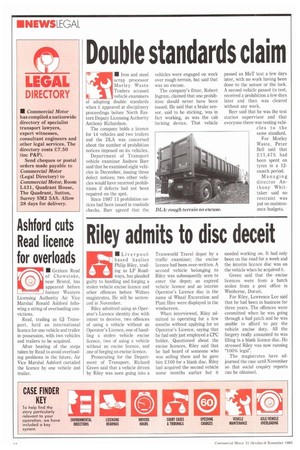Double standards claim
Page 16

If you've noticed an error in this article please click here to report it so we can fix it.
• Iron and steel scrap processor Morley Waste Traders accused vehicle examiners of adopting double standards when it appeared at disciplinary proceedings before North Eastern Deputy Licensing Authority Anthony Richardson.
The company holds a licence for 14 vehicles and two trailers and the DLA was concerned about the number of prohibition notices imposed on its vehicles.
Department of Transport vehicle examiner Andrew Barr said that he examined eight vehicles in December, issuing three defect notices; two other vehicles would have received prohibitions if defects had not been repaired on the spot.
Since 1987 11 prohibition notices had been issued in roadside checks. Barr agreed that the vehicles were engaged on work over rough terrain, but said that was no excuse.
The company's fitter, Robert Ingram, claimed that one prohibition should never have been issued. He said that a brake sensor, said to be sticking, was in fact working, as was the cab locking device. That vehicle passed an MoT test a few days later, with no work having been done to the sensor or the lock. A second vehicle passed its test, received a prohibition a few days later and then was cleared without any work.
Barr said that he was the test station supervisor and that everyone there was testing vehicles to the same standard.
For Morley Waste, Peter Bell said that £11,475 had been spent on tyres in a 12month period.
Managing director Anthony Whittaker said no restraint was put on maintenance budgets.




















































































